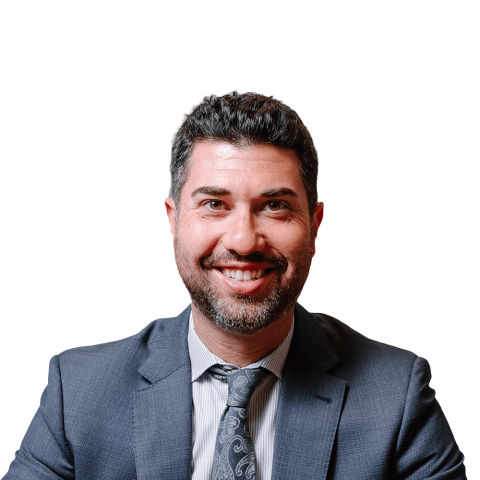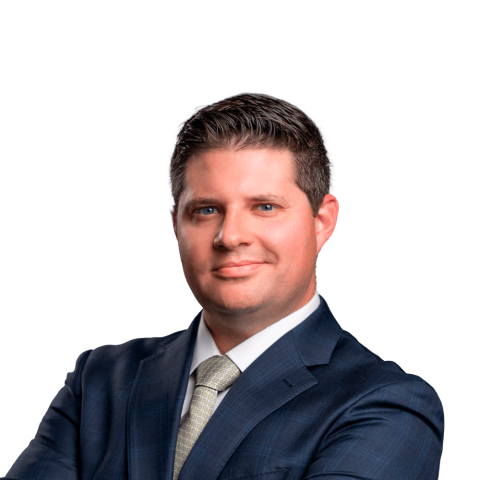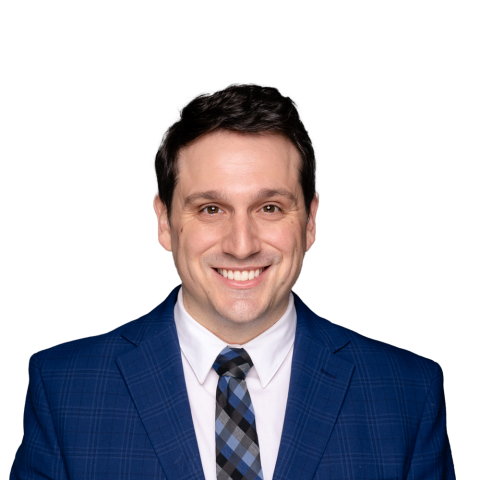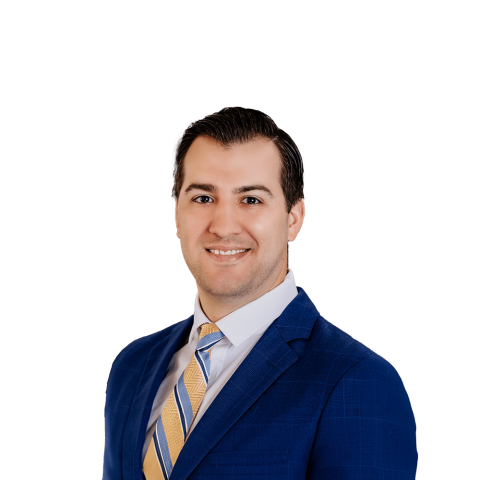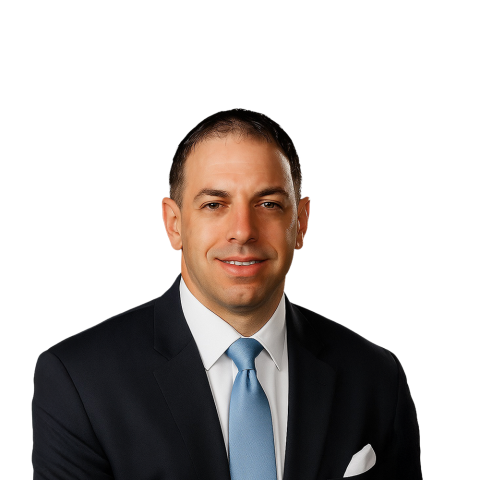Morgan & Morgan Philadelphia, LLC, A Professional Limited Liability Company formed in the State of Florida. New Jersey Managing Attorney: Clancy Boylan, Esq. Results may vary depending on your particular facts and legal circumstances. The attorney featured above is licensed in Florida. For a full list of attorneys in your state please visit our attorney page.
Medical Malpractice Lawyers in Jersey City
When medical negligence causes serious injury, we fight to hold providers accountable.
Morgan & Morgan Philadelphia, LLC, A Professional Limited Liability Company formed in the State of Florida. New Jersey Managing Attorney: Clancy Boylan, Esq. Results may vary depending on your particular facts and legal circumstances. The attorney featured above is licensed in Florida. For a full list of attorneys in your state please visit our attorney page.
New Jersey Personal Injury Lawyers
We’re proud to fight for our neighbors. Meet the attorneys from your community.
100,000+ Five Star Reviews
The reasons why clients trust Morgan & Morgan.
Based on select nationwide reviews.
Results may vary depending on your particular facts and legal circumstances.
Our Results
Results may vary depending on your particular facts and legal circumstances.
How It Works
Focus on your recovery. We'll take care of the rest.

Submit your free evaluation
Start your claim

Meet your legal team

We fight for more
Results may vary depending on your particular facts and legal circumstances. The attorneys shown in these photos may not be licensed in your state. To find an attorney licensed in your area, please visit our attorney page.
Local Care
Backed by America’s Largest Injury Law Firm.
$25 Billion
Recovered for clients
nationwide700,000+
Clients and families
served1,000+
Attorneys across
the country1
Click may change your life
The attorney featured above is licensed in Florida. For a full list of attorneys in your state please visit our attorney page.
Results may vary depending on your particular facts and legal circumstances.
Learn More
Injured and not sure what to do next? We'll guide you through everything you need to know.
Get answers to commonly asked questions about our legal services and learn how we may assist you with your case.
What Is Medical Malpractice?
Medical malpractice can occur anytime a medical professional's (doctor, nurse, hospital staff, or other medical entity, including hospitals) negligent actions or inactions cause harm to a patient in their care. They must act in a way that is inconsistent with how another medical professional in their field with similar training would act under the same circumstances. If you or someone you care about was harmed by medical negligence, contact one of our Jersey City medical malpractice lawyers that specializes in this field of law.
What Are the Requirements to Make a Medical Malpractice Claim in New Jersey?
While a medical mistake by a doctor or nurse can be harmful, not every instance rises to the legal threshold required to pursue a medical malpractice claim. You must have sustained an injury that led to tangible harm requiring the need for additional medical care, or that will significantly affect your future.
First, the injured party must prove a medical relationship existed. This means you were formally under their care at the time of injury, and you must have been an accepted patient of the person whose negligence caused you harm. If you accepted advice from a dermatologist at a dinner party about a suspicious mole you were worried about, and it later turned out to be cancerous, that would not constitute a formal relationship worthy of a medical malpractice claim. However, if you went to a dermatologist's office for a formal exam and they misdiagnosed a cancerous mole, then you would likely have grounds for legal action.
Under New Jersey law, any victim filing a lawsuit must provide an affidavit of merit that supports the reasonable probability that their injuries were caused by negligent medical care. The person that provides the affidavit of merit should be a qualified medical expert willing to assert under oath that the care you received during treatment fell outside the accepted norms and standards of the medical community. The purpose of requiring an affidavit of merit is to limit the potential for frivolous lawsuits.
At Morgan and Morgan, we have an extensive network of medical professionals that can attest to medical negligence if they see sufficient proof. Once the party in question recognizes your initial complaint, you will have 60 days to file the affidavit.
Why Is It Essential to Have an Experienced Jersey City Medical Malpractice Lawyer on Your Case?
Medical malpractice lawsuits are unique to any other type of lawsuit. There are complex rules and procedures that make these claims more challenging, and you need someone who understands New Jersey laws, including the strict two-year deadline for filing this kind of action, including wrongful death. The New Jersey statute of limitations states you must initiate a legal action within two years of the date of the injury or within two years of when your injury was discovered.
The discovery rule provides that the time clock for filing a civil claim doesn't start to tick until the victim discovers or should have reasonably discovered the injury. For example, if you had the wrong leg operated on, you would know immediately. But if a surgeon implanted the wrong kind of medical device, you would have no way of knowing until it was "discovered" because it was causing complications.
There are also rules for minors and incapacitated victims of medical malpractice. If a minor is injured, they have until the date they turn 18 to bring a legal claim. However, should a child die because of medical malpractice, their parents are subject to the two-year deadline. The time clock doesn't start running for incapacitated victims until they regain their faculties.
What Kind of Compensation Can I Get in a New Jersey Medical Malpractice Lawsuit?
Like many states, New Jersey has a cap on certain types of damages in order to limit the amount you can recover for a medical malpractice lawsuit. Currently, there is no cap on economic damages, which are financial losses. These can include:
- Cost of past and future medical care
- Lost income
- Lost earning capacity
- Corrective surgery
- Hospitalization and doctor's visits
- Medical diagnostics and testing
- Assistive medical devices
- Medications
- Cost of transportation (gas, fare, parking) to receive medical care
Noneconomic damages include intangible hardships that a patient might endure after suffering at the hands of an incompetent medical professional. These damages can consist of the following:
- Pain and suffering
- Loss of enjoyment of life
- Loss of companionship
- Mental anguish
- Disfigurement
- Inconvenience
- Emotional distress
The court may award punitive damages as a form of punishment for the defendant in an effort to deter reckless or intentional acts or actions motivated by malice in the future. Punitive damages are not awarded to compensate you for any loss. New Jersey limits punitive damages to a maximum of $350,000 or five times the amount of compensatory damages, whichever amount is more significant.
It's important to understand that punitive damages are rarely handed down. This form of punishment is reserved for the most egregious kinds of cases. For example, suppose you went to an emergency room and were somehow misdiagnosed by an unlicensed physician, resulting in catastrophic injuries. In that case, punitive damages may be used to rebuke the hospital that allowed such a thing to happen.
How Would Comparative Negligence Impact a Jersey City Medical Malpractice Claim?
In some scenarios, the medical professional in question could argue that you played a role in your injuries. For example, suppose your condition worsens if you fail to disclose vital medical information or don't follow the doctor's orders. In that case, any award you receive could be reduced by your degree of fault. This is called the modified comparative negligence rule. You can still recover damages, though, unless your portion of the fault is judged to have been more than 50%.
For example, suppose you're a woman in her mid-30s with a family history of breast cancer. Yet, you fail to disclose major family illnesses in your patient information forms. The doctor would not be on high alert to check for lumps or order a mammogram which would be the standard of care for someone with breast cancer in their family history. Later, you discover a lump on your own and go in, and breast cancer is confirmed. In a scenario like this, you might be judged to be more than 50% responsible and unable to recover damages for a delayed diagnosis.
What Are the Most Common Types of Medical Malpractice?
There are many ways a medical professional may commit medical malpractice. However, a few categories comprise the bulk of these kinds of lawsuits. Here are the most common:
Childbirth errors - Obstetricians, nurses, and other medical professionals are involved in the entire birthing process and are supposed to protect the mother and child. When mistakes are made, the results can be catastrophic and deadly. Often, a childbirth error can result in lifelong consequences, like cerebral palsy.
Failure to diagnose - When practicing medicine, there are certain standards for diagnosing common ailments, and doctors should be able to recognize the signs. If a doctor misses these signs and fails to diagnose, it could be considered negligent under the law. Misdiagnoses can delay treatment for severe conditions and even lead to premature death.
Anesthesia errors - Putting someone under to receive medical care requires great skill and vigilance. Too much, and the patient could die. Too little, and the patient may feel everything yet be unable to communicate.
Defective medical devices - There are countless examples of defective medical devices causing grave harm to people. Some recent examples include defective hip and knee joints, leaking heart valves, gynecological devices, and some pacemakers.
Medication diagnosis errors - Prescription drug errors, whether it be the wrong medication or the wrong dosage, can wreak havoc. The patient could be on the wrong course for recovery for their ailment or experience other adverse effects. Anytime a medical professional decides the wrong course of treatment and another doctor with a similar background would have chosen differently, there may be grounds for medical malpractice.
Surgical errors - Most surgeons never intend to harm a patient when they step into the operating room, but when mistakes are made in surgery, the consequences can be disastrous. Surgeons are not infallible, but when they make a decision to operate under the influence or disregard standard protocols, and an injury occurs, they should be held accountable.
Failure to inform - One of the responsibilities of a medical professional is to inform their patient of the risks and consequences of procedures and treatments so they can make an informed choice. This includes the likelihood of a successful outcome. If a patient okays a course of treatment that ends up harming them, yet they were never informed of the risks, the doctor could be liable for damages.
Contact Morgan and Morgan for Your Jersey City Medical Malpractice Claim
If you believe you have been affected by medical malpractice, working with a law firm with the experience and resources to go after powerful medical entities is crucial. It is as vital to work with competent legal representation as it is to work with competent doctors. We understand what is at stake and can fight hard to ensure you recover the compensation you need to improve your health and hold the negligent parties accountable.
Contact us today for a free and confidential case evaluation. Our fee is free unless we secure compensation.














